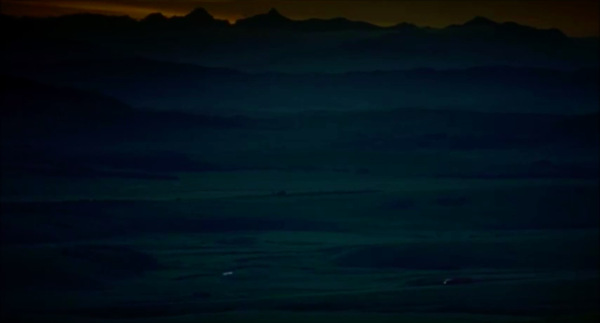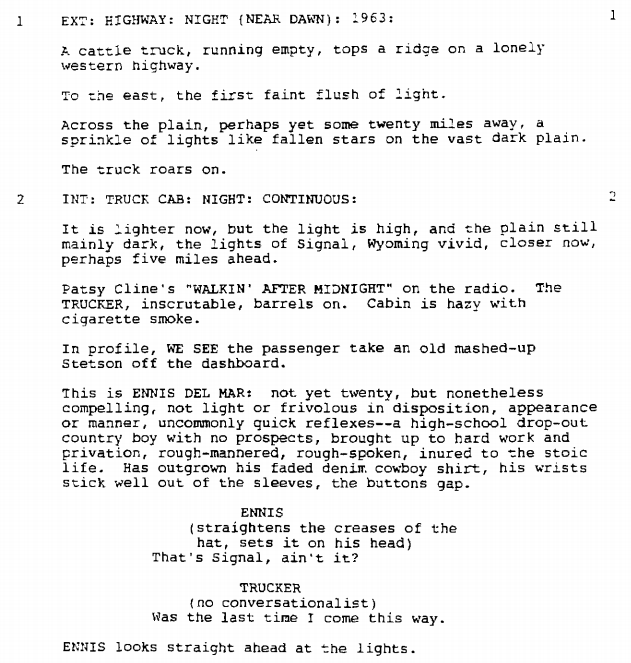Jujube/thesis-memoir: Difference between revisions
No edit summary |
|||
| Line 77: | Line 77: | ||
A father prepares a sandwich for his daughter, and explodes, out of the burden of guilt, that it was he who killed the mother. | A father prepares a sandwich for his daughter, and explodes, out of the burden of guilt, that it was he who killed the mother. | ||
Emmet and Sarah are engaged. | Emmet and Sarah are engaged. Emmet thought of his old love for another man, and Sarah, another woman. | ||
Secrets, loss, yearning. Those are the the things I wrote, without knowing what they were at the time. | |||
. | . | ||
Revision as of 19:41, 29 September 2019
Why I Write
My mom finally mailed me a box of stuff, which she picked out from what I had mailed her from the US the year before. She wasn't able to include the Japanese knives nor the Cuisineart blender. Apparently the government banned the shipping of sharp objects. She wanted to send me a spare electric kettle from her kitchen. The government had banned that, too.
My mom used two plastic bags with the Chinese label "Bei Yi Department Store" as padding. She worked there for more than twenty years. My dad filled in the mailing label. In detailed description of content he wrote — first in Chinese characters and, using the same squarish strokes, English letters — "Clothes" and "Books." He declared their worth: 1500 US Dollars.
I united with two hiking maps of Canada, two of Norway, a knitted grocery bag from Oaxaca, a book on bread making in Finnish, Mexico the Cookbook, The Book of Questions:
In which window did I remain watching buried time?
Or is what I see from afar what I have not yet lived?
Once again, I found the thin hardcover of Letters to a Young Poet. I bought the book when my architecture advisor from college told me to read it. It had lived in a basement in Vermont, three houses in Washington DC, one apartment in New York and a storage facility in New Jersey. It stayed on — unlike many of its contemporaries that were given away or discarded throughout the moves — until it was packed into a USPS parcel to Shanghai, where it lived among old documents, and packed again into a cardboard box to Rotterdam.
"My dad wanted me to be a lawyer," my advisor said, "as an English major, I thought architecture would be the middle ground."
He pressed his fingers together and made a gesture towards something far. The present things are clear while the past trickles away, I remember him saying. I also remember we were discussing the future.
Aren't they similar — this thing we call past and this thing we call future.
.
What is necessary, after all, is only this: solitude, vast inner solitude.
Letters to a Young Poet, Rainer Maria Rilke
.
The unwritten words weighed in my chest. If I didn't let them out, I would collapse and burst into a pool of flames.
Things became true when I wrote. The tip of the pen touched the paper, casting thoughts into form. I watched the ink spread under the yellow lamp until it dried into a matte black. My g's and y's looked odd. I felt uneasy switching to a new pen; it was too thick, too shiny; it was too smooth, too fine. I was intoxicated by the air. My limbs heavy, I marveled at the luminous, pink-grey sky. I never saw the moon.
"I will remember this now that I am writing it down."
At times I clenched my teeth and kept my notebook shut. It was as if by picking up a pen I would carve the memories into the fibers forever. I wasn't able to make sense of them. I didn't want to relive them. Couldn't afford to. Now I don't remember what happened.
I wrote, but for the longest time I wasn't able to say I was a writer. Writing was a private affair. The only ways I could share what I wrote were riddles and poetry.
There was a distance between me and me, and therefore, there was a distance between me and the world.
.
I started reading (about) theoretical physics. I dug a big rabbit hole on wikipedia around quantum mechanics. Consulted reddit book lists. Download papers. I spent days binge watching PBS Spacetime on Youtube and wrote a play trying to visualize entanglement. It was not the worst type of numbing I could've done -- but the point is I picked something so consuming that it made me carry a sense of purpose and proved that I exist and could learn and create. I sipped mezcal in the morning while typing a short story about a lady afraid of the color green. I wandered the streets with my coffee-ordering Spanish and, even though I tried to romanticize it and convinced myself I was making the things I'd always wanted to make, reality was simply monotonous and hopeless. Where would I go now? Who would hear me? Being lost was agonizing.
Letter to a Friend, Aug 2019
.
When I was 17 or 18, before going to the US, I wrote a letter to myself. Around that time I was enamored by Stefan Zweig, an Austrian Jewish writer prolific during the 1920's. I bought all the books I could find under his name, thinking one day I would learn German just to read his works in their original language.
There is one line from that letter that I revisit ever so often, my mind's eye watching my moving hand.
"One day I will be an author."
I wrote in Chinese for all those years.
I don't remember when exactly I stopped doing that.
Brokeback
I watched Brokeback Mountain for the first time in 2019 on a very bad streaming platform. I had to close a dozen adult webcam sites before I figured out how to enter full screen. Suppose that's something you pay for getting something free.
I was in high school when the movie came about. It was censored in the Chinese cinemas, but that was not the reason I did not see it. Had I browsed the night market where I had acquired full seasons of Prison Break, I certainly would have found a copy of it. America was to me the world of Friends. I had no urgency to grasp its rural west, no visual reference of the Rockies, no vocabularies for a discussion on sexuality and, on top of that, an unfortunate misunderstanding of love.
The cowboy hats on the cover must have looked too peculiar to me, should my eyes have glazed it, underneath the plastic sheet the street vendor used to keep off the dust.
Fourteen years later, in the midst of figuring out how to tell stories through film, at an age where love seems more forgiving, I thought to myself: maybe I should watch it now.
.
When I write a play I let the characters carry a feeling and put them in extremely uncomfortable places. Then I hear them talk.
A woman demands a journal from a man. The journal belongs to her old lover; and his, too.
A father prepares a sandwich for his daughter, and explodes, out of the burden of guilt, that it was he who killed the mother.
Emmet and Sarah are engaged. Emmet thought of his old love for another man, and Sarah, another woman.
Secrets, loss, yearning. Those are the the things I wrote, without knowing what they were at the time.
.
[...]Dawn came glassy-orange, stained from below by a gelatinous band of pale green. The sooty bulk of the mountain paled slowly until it was the same color as the smoke from Ennis’s breakfast fire. The cold air sweetened, banded pebbles and crumbs of soil cast sudden pencil-long shadows, and the rearing lodgepole pines below them massed in slabs of somber malachite.
Brokeback Mountain, Annie Proulx (the New Yorker, October 6, 1997)
.
Opening Scene, Brokeback Mountain, Dir. Ang Lee (2005)
.
Screenplay, S1 and S2, Brokeback Mountain. Written by Larry McMurtry and Diana Ossana (2003), adapted from the Annie Proulx Story from 1997


